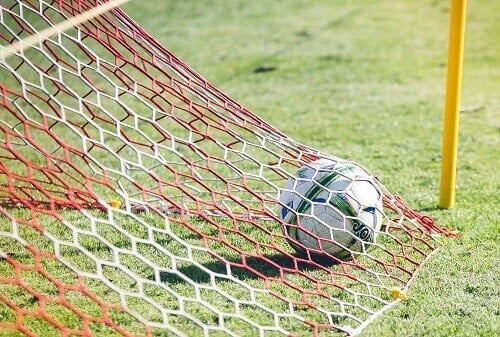
Congratulations on securing your first job in PE. Like most professionals starting a new role, you’re probably handling equal proportions of excitement and insecurity. But don’t fear. Here are three ways you can succeed in your first teaching role and ensure your career in education is off to a smooth start.
1. Be organised, but flexible
A good lesson plan makes a confident teacher, and they are a vital part of the learning and teaching process. A lesson plan not only helps you stay organised and on-track, but it also enables a smoother learning process for your students, enabling them to reach their objectives.
Being organised also means that you’ll be able to handle any unexpected mishaps – a common occurrence when working with children. But don’t take your organisation to the extreme. Being too structured can do more harm than good, so remember to be flexible with your plans too.
When putting your lesson plans together, consider a coherent framework that relates to the PE syllabus. If your lesson plans work, you then have a useful template to use for future lessons. This template can be adapted to different students and classes, saving you time in the long run.
2. Go beyond the curriculum
As a PE teacher, your responsibility extends to afterschool clubs, in addition to teaching the prescribed curriculum. Research indicates that fitness can increase mental strength and so your new teaching post is your chance to become an ambassador for encouraging an active lifestyle for all.
If on-site resources are tight in your new school, consider partnering with local sporting teams to implement a new initiative, as the Leicester Tigers have recently. Alternatively, you could suggest getting involved with national sport-themed events, such as Race for Life or Sustrans Big Pedal 2018. Your dedication to the pupils and their welfare will show your employer that you’re a valuable teacher and may open up opportunities for career progression.
3. Don’t be afraid to ask for help
You may have gained teaching experience via your placements while studying, but a training environment can be very different from the real deal. If you have any questions or need help in your new PE job, don’t be afraid to ask for it.
Flexibility is vital in a teaching environment, and so you should avoid feeling embarrassed if you make a mistake or if things don’t go to plan. Recognise that you are still learning and take the necessary steps to become a better teacher. Often, this is simply a case of checking in with your colleagues.
If you ever have any uncertainties, ask your fellow teachers for advice. As teaching professionals, you all have unique skills, experiences and knowledge, and since you teach the same pupils, your co-workers’ insights can be extremely valuable.
Asking for help doesn’t mean you’re failing; it means you’re proactively learning, and you’ll gain a lot of respect from your colleagues for speaking up.
4. Don’t stop learning
Just because you’re a qualified teacher and you’re tasked with educating the next generation, it doesn’t mean you should stop learning.
Consider joining societies dedicated to physical education teachers, leaders and volunteers. An affiliation with a professional body will offer you the tailored support you need as you progress through your career.
It’s also worth bookmarking a few of the industry’s top PE Twitter feeds. Not only will you be able to stay on top of the latest news and trends within education, but you’ll also be able to access key teaching resources, from professional development courses and mentoring schemes, to lesson plans and other PE-focused literature for the classroom.
5. Ask for feedback
Something to remember in your first role as a PE teacher is that your students are the key to forming an engaging curriculum. Often, at the end of the school year, you will have the opportunity to ask for student feedback, via comment forms and questionnaires, or by meeting with a selection of students across the key stages.
By gathering insights and opinions from your students, you’ll be able to review your less and most popular lessons and consider fresh ways to adapt the curriculum for the future year groups, setting you in good stead to succeed as a PE teacher.
Further resources and information for PE teachers entering the profession
Preparing to become a PE teacher course
Wanna Teach PE? An A-Z guide for the next generation of aspiring teachers
A synopsis of the Wanna Teach PE? book
Insight into Being a PE teacher: all you need to know
Advice on Securing your first PE teacher job


hello I am PGCE trainee and I am struggling with behaviour management in my classes. its gotten to the point where pupil learning is being sacrificed for safety and order. Is there any ideas/strategies you (or anyone) could give me in dealing with behaviour?